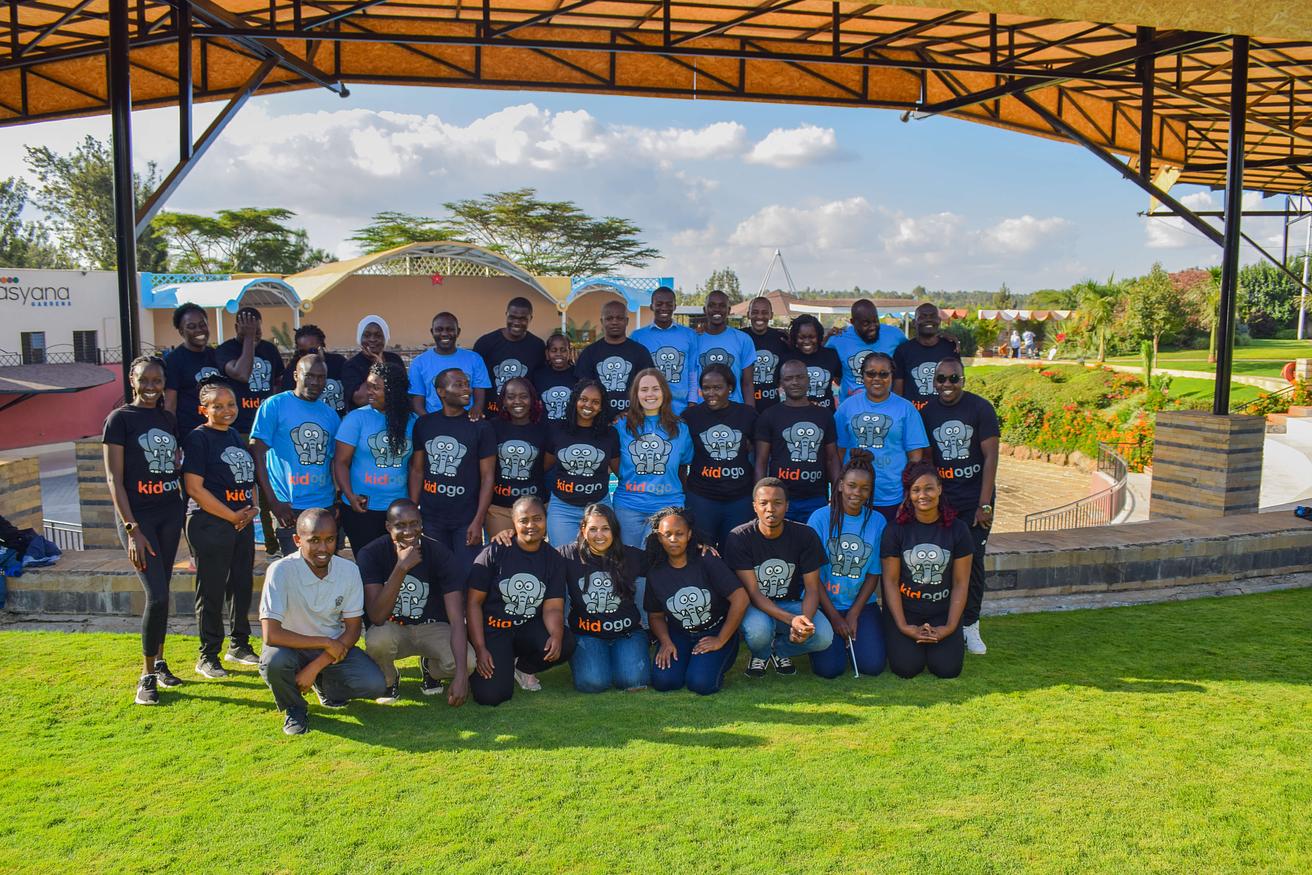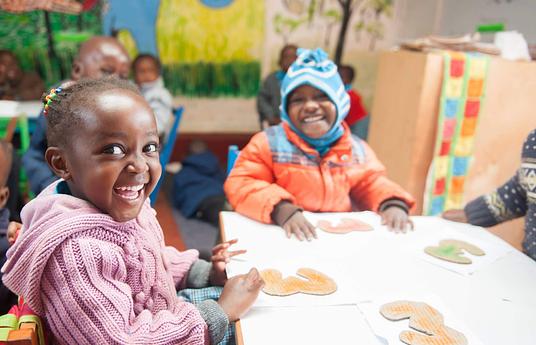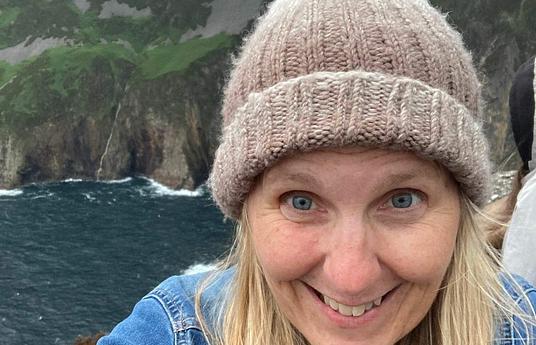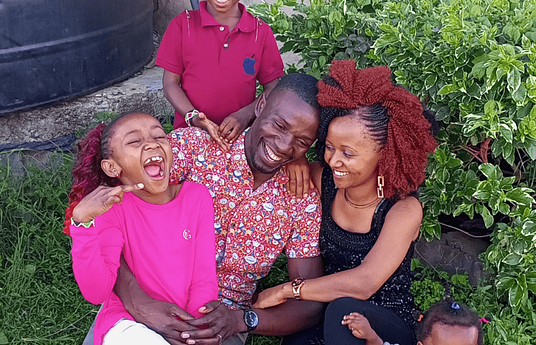Hello HundrED community! My name is Alex and I am currently based in beautiful Vancouver, Canada. I love Vancouver - the mountains, the ocean and the incredible food (eating sushi 5x/week is okay…right?) I work remote for an incredible organization called Kidogo. Kidogo uses a social franchising model to increase access to quality, affordable childcare in low-income communities. Since I work remote and our team is based in Kenya, my day usually starts early by 5am and ends by 2 or 3! Since by this time of day I have been inside I usually like to go for a bike ride or walk or just sit by the ocean and read for a few hours to decompress and reflect on my day. Current read is The House in the Cerulean Sea which I am loving so far. My day usually finishes off with cooking dinner at home and yoga before bed.
What was the moment, realisation or a person that made you excited about education in the first place?
After high school I took a gap year and worked in Shanghai, China with a social enterprise that aimed to get teens excited about social impact and making a difference. Myself and other facilitators would develop social impact/leadership training and go into local high schools and facilitate sessions directly with students on the content we developed. I remember my first day I was so nervous - would the students enjoy the content? Would they be inspired? Would they laugh at my mediocre Mandarin? Would I be able to make an impact?
Little did I know, I had nothing to fear. Even that first day the kids were so excited and asked a million questions - half of which I didn’t even know the answer to. I remember the first workshop was around water access in rural China and how some communities did not have clean drinking water and the kids were shocked that this existed and began to immediately strategize and brainstorm how they as individuals could collaborate and create change. This was nothing short of inspirational.
I realized that if one workshop could lead to such a spark and interest to take action - what else can education and bringing impact focussed learning into educational environments accomplish?
Since this initial experience the intersection of impact and education has guided my career - working as a youth worker for at risk youth, to supporting female entrepreneurs with business training in Peru and most recently, building sustainable early childhood education solutions with Kidogo.
Where do you see the biggest opportunities for innovators in your region?
Canada is a geographically giant country and a culturally diverse context. There are some incredible innovations improving education access in Northern Canada, school programs targeting mental health and social justice classroom initiatives. But access is inequitable and more needs to be done.
To appreciate the country and all of its’ inhabitants, solutions that expand on the following are needed:
- VR + Cloud based resources to expand access to knowledge and materials. Canada has a divide between urban and rural, First Nation and non-First Nation. How can we leverage technology to equalize access?
- 'Forest Schools' - Canada has an incredible outdoor ecosystem - forests, mountains, lakes, rivers and animals. What can be done to increase interest in and build not only forest activists, but create equitable knowledge sharing of outdoor environments?
- Mental Health in schools - how to expand access, innovate on education focussed solutions? This is a solution needed not only in Canada, but globally. How to continue to de-stigmatize mental health and ensure that mental health, mindfulness and wellness are a cornerstone of the education system?
What are the challenges that slow down innovation in your context?
Globally 350 million children lack access to quality childcare, it’s a childcare crisis. There are some incredible innovations working to support these 350 million children - but there are massive challenges hindering progress. These include:
- The belief that learning does not begin until age 5, when in fact 80% of the brain develops by age 3 and 90% develops by age 5. This misconception has led to a lack of attention and resources directed to the early years.
- Not recognizing early childhood education as a public good - early childhood education is not only a vessel to help children realize their full potential, but it is also a precursor for women’s economic empowerment.
- Lack of policies around early childhood education - policy makers need to create policies that support early childhood education and care workers.
COVID-19 has been devastating in so many ways, but it has put early childhood care and education in the spotlight. Now is the time to work together to create sustainable change at all levels.
How do we seize this opportunity and continue the momentum? How do we move past the challenges to build back better?
What little or big part do you want to play in improving education?
I want to be a catalyzer to improve education and create an enabling environment for education. As a Country Lead - with the Country Lead network, HundrED has created a platform to make this possible.
Through building a personalized systems change strategy - having conversations around the education landscape, how can I shine a spotlight on education innovations, facilitating dialogue on education and working so research does not exist in a silo and researchers are connected with implementers and funders.
I believe each of us has a responsibility to play a role - either big or small - in improving the education ecosystem. As cliche as it may sound, it truly does take a village to create change. Not everyone needs to start an innovation or join a network like the Country Lead network - but each individual can contribute in small ways - for example - sending a letter to advocate for education reform, telling a friend about an interesting innovation, or directly supporting an education innovation through engaging with their programming.
Who would you like to see joining the HundrED community to accelerate the pace of change?
The HundrED community has created a unique opportunity to come together not with competition in mind, but with the spirit of collaboration to share ideas and improve the system as a whole. I would love to see more strategic partners to join the HundrED community.
There are incredible ideas and innovations, but without support - financial, learning, network access - the road forward is much more difficult. How can funders, implementing innovations and researchers work together to create sustainable change?
How does a future worth aspiring look to you?
I envision a future where quality, affordable early childhood care and education is globally available - 350 million children no longer lack access to quality early childhood care and education, but have access to quality care and education. I envision a future where the government creates a childcare subsidy to ensure that every child, no matter where they are born, receives quality care. I envision a future where the early years are not an afterthought but rather a societal building block. I envision a future where business, government, researchers, implementers and funders have moved from their cylos to collaborative, catalyzing knowledge sharing.
These are big bold visions for the future but I believe with organizations such as HundrED in the mix - advocating for change, creating an enabling environment, education is on the right path forward.
If you are interested in joining the HundrED community, you can find more information here.



